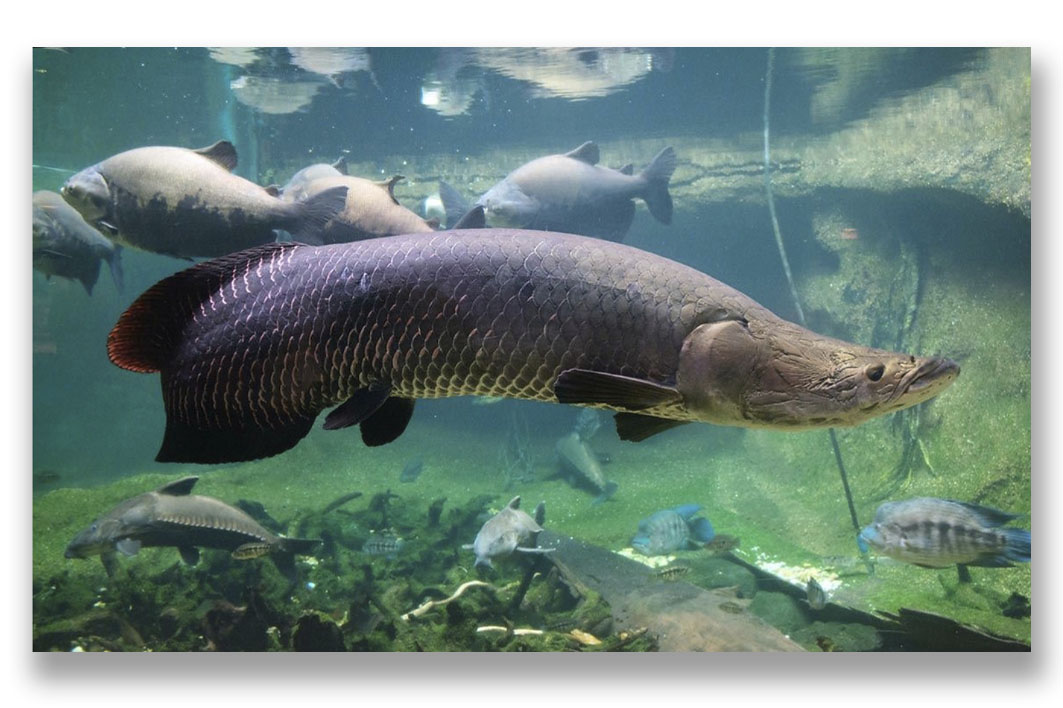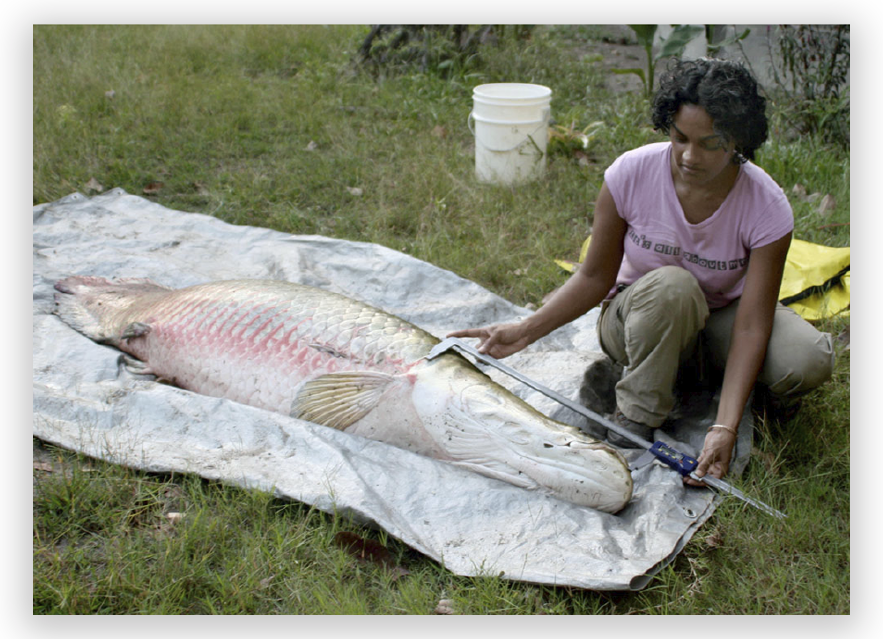
The Pirarucu and its women
Greta Thumberg would be proud to know that women from the middle Juruá, in the Amazon, contribute at the same time to the environmental balance in that region, with their work and community-based management of the largest freshwater fish in the world, the pirarucu (arapaima)*. And still generate their own income.
But not all fisherwomen have the same professional recognition. Despite representing 47% of the workforce in the fisheries, there are still very few women who are socially and financially recognized.
In an article written by researchers from the Juruá Institute, it is shown that community-based management of the pirarucu, in the Amazon, can be an example of a model to reduce the recognition gap between women and men in fisheries. There were 143 women interviewed along 1500 km of the Juruá River, and the results show that the community-based management of the pirarucu brings an unprecedented opportunity for the formal insertion of women in the fishing production chain, by remunerating them for their work in the processing of this fish.
In communities that do not have a community-based management of the pirarucu, most women are not paid for participating in these activities, with only 8% receiving some income from fishing. In communities with pirarucu community-based management, 77% of them are paid for their work in fishing activities. The average female income in the community-based management is US$215, in stark contrast to the communities where there are no professional activity for that fish. This financial recognition, of course, directly implies greater female autonomy and independence. However, the potential effects of this change go much further. Studies indicate that this can have positive impacts directly on improving health, food security and quality of life for the families.
The article, entitled “Resource co-management as a step towards gender equity in fisheries”, was published in the journal Ecological Economics and deepens this study.
The Pirarucu, Ecotok and the Juruá Institute.
When Ecotok allied itself with Instituto Juruá, there were many values in common between both brands: protection of the pirarucu and life in the Amazon, respect for the largest tropical forest in the world, and for the people who protect it daily and locally, including, of course, women.
That’s why each time Ecotok packages are purchased by consumers, part of the profit goes to support this virtuous cycle of life in the middle Juruá, a dense Amazon region, which keeps life preserved in the river, in the air, in the forest and in the local communities. The objective is to support life by guaranteeing the generation of incomes from the controlled fishing of this emblematic fish from the Amazon.
Therefore, restaurants and end consumers who purchase Ecotok already know: in addition to guaranteeing a premium quality and eco-friendly charcoal for their BBQ and their kitchens, they indirectly support the life of this fish and the local communities of men and women that protect the largest tropical rainforest in the world.
(*) Arapaima is the scientific name of the pirarucu, the largest freshwater fish in the world, typical of the Amazon Basin. The fish was on the brink of extinction a few years ago, and thanks to the scientific work of the Juruá Institute, it can now be fished in a controlled manner, generating income for local families who protect the fish, the forest and life.

Women and their role in the pirarucu
community-based management. At Instituto
Juruá they are socially and financially
recognized in the bio-economy of this
important fish from the Amazon.
